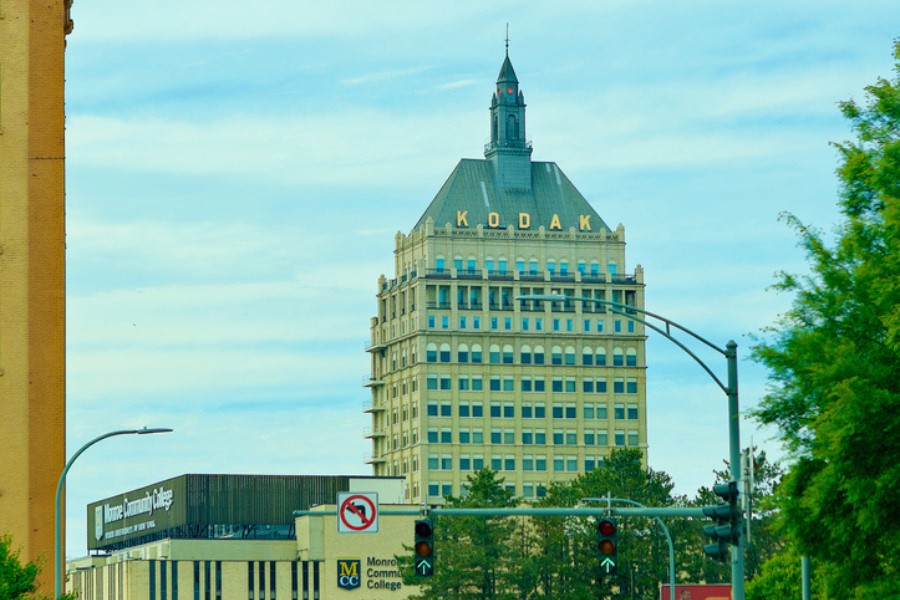

Eastman Kodak Co. is contemplating a move to unlock gains created by its overfunded pension system, according to people with knowledge of the matter.
The company is weighing a so-called pension reversion, which would enable it to take control of the surplus rather than leaving excess capital to current and future retirees, said the people, all of whom requested anonymity to discuss confidential information. The maneuver would involve selling its portfolio of illiquid investments while liquidating other positions, the people said.
The proceeds may be used for corporate purposes, such as paying down debt and investing in growth initiatives, according to the people. No final decision has been made.
Shares of the company surged, closing 53% higher Thursday at $5.34, after Bloomberg News reported the potential plan, the biggest jump in more than three years. They extended those gains in after-hours trading.
Pension sponsors typically can end a plan and take control of the excess assets if the plans’ documents allow it. But the US may impose punitive taxes on such moves unless the company uses some of the excess to set up a replacement plan or increase benefits, according to Milliman, an actuarial company.
A spokesman for the Rochester, New York-based company didn’t immediately respond to requests for comment.
Kodak was once the leader in the photography and film industry, then was overtaken by the shift to digital. The company now focuses on manufacturing advanced materials and chemicals.
The company’s pension plans have benefited from strong performance. They generated $1.1 billion of returns in the three years through 2022, roughly double the $541 million that was expected. The largest US plan had almost three-quarters of its assets in private equity and hedge funds.
The overfunded status soared to about $1.2 billion at the end of 2022, or more than four times Kodak’s market capitalization through Wednesday’s close. The company is disbanding an internal team that manages the plan’s assets, transferring oversight to NEPC, Bloomberg News reported this week. It has sent liquidation requests to investment managers including Arrowstreet and Bridgewater Associates, a person with knowledge of the matter said.
Kodak was invested in Bridgewater Pure Alpha Fund II and Arrowstreet Capital Global Equity Long/Short Fund as of Dec. 31, 2022, according to a filing. A representative for Arrowstreet didn’t immediately respond to a request for comment, and one for Bridgewater had no immediate comment.

While industry statistics pointing to a succession crisis can cause alarm, advisor-owners should be free to consider a middle path between staying solo and catching the surging wave of M&A.

New joint research by T. Rowe Price, MIT, and Stanford University finds more diverse asset allocations among older participants.

With its asset pipeline bursting past $13 billion, Farther is looking to build more momentum with three new managing directors.

A Department of Labor proposal to scrap a regulatory provision under ERISA could create uncertainty for fiduciaries, the trade association argues.

"We continue to feel confident about our ability to capture 90%," LPL CEO Rich Steinmeier told analysts during the firm's 2nd quarter earnings call.
Orion's Tom Wilson on delivering coordinated, high-touch service in a world where returns alone no longer set you apart.
Barely a decade old, registered index-linked annuities have quickly surged in popularity, thanks to their unique blend of protection and growth potential—an appealing option for investors looking to chart a steadier course through today's choppy market waters, says Myles Lambert, Brighthouse Financial.
